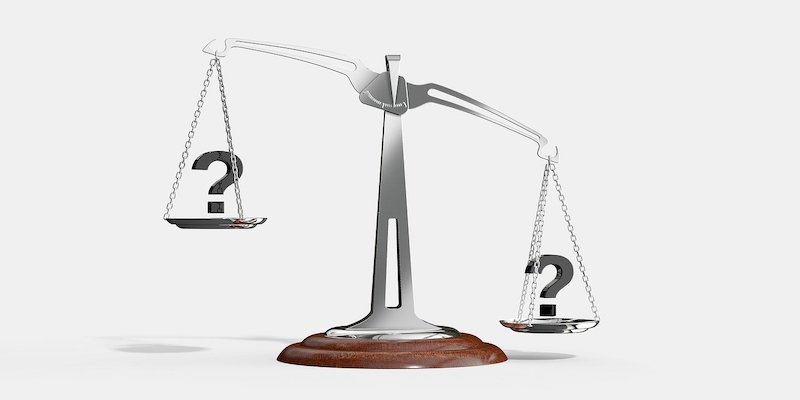If you find yourself stuck in a legal dispute, whether it be with friends, neighbours or your family, it can be an incredibly distressing situation. The process can be incredibly time consuming and costly, so it is important to seek specialist assistance from the outset.
While the majority of disputes can be settled amicably, those that cannot will need to be examined carefully to decide the best course of action. This is because you could end up having to cover the other party’s legal costs if things do not go your way.
With any form of dispute, the earliest you seek specialist advice, the more chance you have of achieving a positive resolution. With this in mind, we present our guide to civil litigation and dispute resolution.
What is Civil Litigation and Dispute Resolution?

This describes the process of resolving private legal disputes either via mediation or through the Courts. On the whole, these disagreements centre around claiming compensation or the requirement for another party to take specific actions. In cases of civil litigation and dispute resolution, this type of compensation takes the place of criminal proceedings.
The types of cases that often arise include:
- Wills, trusts or probate disputes
- Landlord, tenant or property disputes
- Employment disputes
- Breach of contract
- Professional negligence
- Defamation of character
First Steps

If you believe you have a case, your first port of call should be to consult a specialist solicitor. This is because they will take a thorough look at all of your evidence and assess the merits of your claim – potentially saving you a lot of time and money.
On top of this, a specialist solicitor will be able to ensure you are fully aware of all the costs involved and your options to secure additional funding. They can also liaise with the other party to establish the grounds for the dispute, while simultaneously gathering evidence to support your case.
Your solicitor can help resolve the dispute before going to Court and guide you through the entire process if the case proceeds to litigation. This gives you much-needed peace of mind that everything will be taken care of on your behalf.
Civil Litigation and Dispute Resolution Options

There are two main stages to resolving a dispute, namely Alternative Dispute Resolution (ADR) and Litigation (Court action). It is extremely important to exhaust all possible options before pursuing litigation, since it may weaken your position if you refuse the opportunity to negotiate.
Alternative Dispute Resolution
There are several different forms of ADR that can be used to negotiate a solution, including mediation, arbitration and conciliation. If you can prevent your case going to trial, you can save yourself a lot of hassle with having to fill in Court forms and the expense of pursuing litigation.
The most common form of ADR is mediation, which involves using an independent advisor to reach a mutually beneficial solution for all parties – thereby negating the need to go to Court. The mediator will not advise how to resolve the issue, nor issue a final decision. Instead, they will ask questions to help shine a light on underlying issues and clarify what options are available to solve them.
Seeking mediation has a number of advantages, including:
- Effectiveness: pursuing this form of ADR has a very high success rate
- Cost-effective: solving your issue via mediation is a lot less expensive than going to Court
- Confidentiality: Using a mediator allows the dispute to remain private
- Rewarding: While litigation usually results in one party losing out, mediation often comes to a conclusion that benefits both parties
Civil Litigation
If pursuing ADR is not possible or is unsuccessful, your only option should you want to continue the case is to pursue litigation through the Courts. The procedure is governed by Civil Procedure Rules (CPR) and involves both parties needing to prove their case, usually before a judge.
Pursuing civil litigation involves several important steps, which are:
Pre-Action Protocols
The type of protocols you need to go through will vary depending on the type of case you are pursuing. They will usually involve encouraging both parties to share information regarding their current position so they can try to settle the issue between them. This typically means that the parties will exchange correspondence and meet face-to-face.
Pleadings
Step two of the civil litigation process is to issue a claim to the appropriate Court, which will then be forwarded to the defendant. The form will also include the particulars of the case, such as:
- The facts and matters of the claim
- The legal basis of the claim
- The claimant’s desired resolution – usually compensation
A defendant is usually given 14 days to either respond to the claim in writing or send an acknowledgement of service both to the Court and claimant. The second option gives the claimant a total of 28 days to submit their defence.
If this is not possible, the defendant may be able to negotiate an extension to the deadline with the claimant. Once the defendant’s case has been presented, the claimant will then be able to provide their own response if they wish.
The drafting of these particulars is known as pleadings, which are usually drafted by the parties’ legal representatives. If the matter is extremely complicated, an expert may be drafted in to help.
Costs and Case Management Conference (CMC)
This is usually the first time that both parties will appear before the Court. The CMC is used to deal with administrative matters regarding the case and check that all of the issues are understood. During this hearing, the Court will also provide a timetable for taking the case to trial and outline the steps both parties will need to undertake and by when.
Before the CMC takes place, representatives of both parties are required to prepare documents that include items like a cost budget, disclosure report and draft timetable. They are also encouraged to agree as much as possible to try and avoid the case progressing to the hearing. In some cases, if the parties are able to agree with everything, the Court will decide that a hearing is not necessary and will instead provide the parties with an order that records what was agreed.
Disclosure
At this point in the civil litigation process, both parties will present their documentary evidence to each other. This includes any information displayed on paper, mobile phones, computers and metadata. Parties will usually be required to disclose information that either supports or undermines the case – known as ‘standard disclosure’.
Witness Statements
Although supplying documentational evidence is a great way of supporting your case, the Courts will in many cases call for additional information from witnesses. These statements may be used to provide a backstory for the dispute or fill any gaps in the documents.
The witnesses must only provide factual evidence and not try to give their opinion. There is also a chance that they may be cross-examined at trial.
It is important to note that while a witness statement is usually prepared by a solicitor, it must be in the witnesses’ own words and not embellished in any way. Once it is finished, the witness must sign a statement of truth to confirm that everything included in the statement is completely accurate.
Expert Evidence
Unlike witness statements, expert evidence is allowed to be opinion-based. In most trials, a Court will typically direct the parties to instruct a single joint expert – although this differs in professional negligence cases where multiple separate experts will be permitted.
The purpose of expert evidence is to fill in the gaps in technical knowledge that the Court has. It is usually provided via a written report that is sent to the Court and opposing party. Should the parties want their expert to provide oral evidence, they must get permission from the Court beforehand. In cases where each party has their own expert, a judge may ask them both to meet to discuss their opinions, then provide a written statement that states the points they agree and disagree upon.
Pre-Trial Review (PTR)
This is another administrative hearing, at which point the Court will check a number of factors – such as whether both parties have complied with the timetable and any other orders that might have been issued during dispute proceedings. A Judge will also finalise the timetable for the trial, put together a list of issues to be decided and fix a date for the trial to commence. Finally, the Court will consider if there are any more opportunities to come to an amicable resolution before the trial begins.
Trial
Once the case has arrived at the trial, it will be up to the legal team of both parties to present their evidence, go over any relevant laws or case law and call in expert witnesses where necessary. When all the evidence has been presented, the Judge will make their final ruling. This will usually be delayed to give the Judge time to consider everything and make their decision.
Make the Right Choice

The civil litigation and dispute resolution process may seem difficult to navigate at first, but all will become clearer if you obtain the right support. This is where Shams Williams can help.
Our specialist civil litigation and dispute resolution solicitors have amassed a great deal of experience in all types of cases and mediation methods. We will provide expert guidance from day one, where we will conduct a thorough evaluation of your case and advise whether it is worth pursuing.
We understand that no two cases are the same, which is why we will provide a service that is tailor-made to suit your individual circumstances and requirements. Whatever you need, you can rely on Shams Williams to help.






